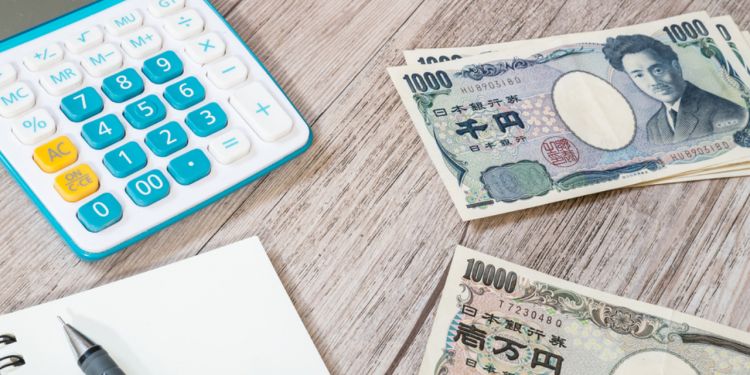Taxes in Japan

If you are an expat in Japan, you may be wondering whether you are a resident or not and whether you need to pay income tax or not. You may have started a business, and you are unsure about its status, the amount of tax to pay, or how to file a tax return. What are the main principles of the Japanese tax system? What are the taxable incomes? How to ensure the proper management of your assets? To answer your questions, here is an overview of the Japanese tax system.
The different types of taxes in Japan
Whether or not you pay local taxes does not depend on your nationality, but on your place of residence. All individuals are classified into two categories: residents and non-residents. Residents are further divided into two subgroups: permanent and non-permanent residents.
Personal income tax
- For residents
Residents in Japan are those who stay in the country for at least one year. In this case, residence here means the regular, permanent place of living. The people concerned have been living in Japan for a long period of time (at least one year). Their taxes will be calculated according to their income, whatever the source. Both Japanese and non-Japanese incomes will be taken into account for the calculation of their income tax.
- For non-permanent residents
Non-permanent residents have a domiciliary address or a residence in Japan for five years or less, all within a 10-year period. The Japanese government distinguishes between residence and domicile. A domicile is the place where a person lives. Non-permanent residents do not have Japanese nationality. They are not taxed on foreign income as long as it is not transferred or paid in Japan. But they will have to pay taxes on wages received for work done in Japan, even if the payment takes place outside the country (if the company is a foreign one, for instance). The Japanese tax authorities consider these wages as being of Japanese source.
-
For non-residents
Expatriates who do not meet the conditions of a resident (permanent or not) are defined as "non-resident". Their income from Japanese sources will be taxable. Their foreign source income will be tax-free. In some cases, withholding tax will not be possible. He or she will have to file their income tax return and pay a tax of 20.42% of their salary.
Income tax in Japan
In Japan, automatic tax deduction at source is applied to collect income tax. This tax is withheld monthly. The amount to be paid is based on the amount earned in the previous year. In some cases, the administration makes automatic adjustments on the last salary of the year in case of overpayment or, on the contrary, if the required amount has not been reached. The deadline for tax returns is March 15 of the following year.
Who should file a tax return in Japan?
You must file a tax return before the end of the tax year in the following cases:
- You are self-employed
- You are an employee
- You are leaving Japan before the end of the tax year
- You wish to apply for a tax refund, or if the tax has not been deducted automatically from your salary
In these cases, go to your municipal tax division with the following documents:
- Statements of your income during the previous year (e.g., paystubs)
- Residency card
- Hanko, if you have one (the hanko is the stamp on which the inkan, the seal, is engraved, which serves as your signature).
Since the tax rate is based on the previous year, if you have lived in Japan for less than a year, you are not subject to residency tax for the current year.
Standard tax schedule for individuals
Taxable income -> Progressive tax rate up to 45%
-
Less than 1,950,000 JPY -> 5%.
-
From 1,950,000 to 3,300,000 JPY -> 10%.
-
From: 3,300,000 to 6,950,000 JPY -> 20%.
-
From 6,950,000 to 9,000,000 JPY -> 23%
-
From 9,000,000 to 18,000,000 JPY -> 33%
-
From 18,000,000 JPY to 40,000,000 JPY -> 40%
-
More than JPY 40,000,000 -> 45%.
Special taxes in Japan
Reconstruction assistance tax
Following the 2011 Tohoku earthquake, a special tax for reconstruction assistance was voted. It corresponds to 2.1% of the income tax. In force since 2013, it is scheduled to last until 2037.
Local tourism tax
The local tourism tax is levied at a rate of 10% on the previous year's income. In general, it is about 5000 yen per year.
The tourism tax applies to all residents, regardless of their nationality. It is usually calculated each year in June and can be paid in installments or as a lump sum:
- Deduction at source by your employer from your salary
- Automatic deduction from your bank account
- Direct payment at local stores
- Direct payment at a bank
Tax deductions on wages in Japan
The table below is for fiscal year 2020 (and thereafter, unless otherwise specified):
- Up to 1,625,000 yen -> 550,000 yen
- From 1,625,000 to 1,800,000 yen -> salary x 40% - 100,000
- From 1,800,000 to 3,600,000 yen -> salary x 30% 80,000
- 3,600,000 to 6,600,000 yen -> salary x 20% 440,000
- From 6,600,000 to 10,000,000 yen -> salary x 10% 1,100,000
- Above 8,500,000 1,950,000 yen -> 1,950,000
Non-double taxation treaties in Japan
Japan has signed many tax treaties with partner countries: France, Italy, Egypt, Cameroon, Israel, Qatar, Singapore, Brazil, USA, Colombia, etc. (more information in the link at the end of the article). These treaties are used to fight tax evasion and avoid foreigners from paying income tax in their home country and their expat country.
Corporate income tax in Japan
In principle, a domestic company has its head office located in Japan. Whether or not it relocates its activities, its registered office determines its tax residence. The nationality of the shareholders does not matter either.
The different types of companies in Japan
There are two main categories of companies in Japan: local structures and foreign structures.
There are 4 forms of local structures: limited liability companies (godo kaisha), free zone companies, joint stock companies (kabushiki kaisha), and limited liability partnerships.
There are 2 forms of foreign structures: Japanese branches and Japanese representative offices.
Standard tax rates applied to companies in Japan are as follows:
- Local taxes -> 2.390%.
- Corporate tax and special corporate tax ->
- 3.5% on the annual tax base up to 4,000,000 yen
- 5.7% on the tax base up to 8,000,000 yen
- 7% on the tax base above 8,000,000 yen
Good to know:
The tax base is the amount used as the basis for tax calculation. Capital gains will affect the tax amount.
Companies are subject to other special taxes: real estate acquisition tax, municipal fixed asset tax, stamp duty, registration and license tax. Some cities, such as Tokyo, Osaka or Fukuoka, levy a tax on business premises.
Corporate tax credit in Japan
Tax deferrals or credits are available. At the height of the Covid pandemic, the Japanese government allowed companies with a registered capital of 1 billion yen or less to carry forward losses from February 1, 2020, to January 31, 2022. Depending on their situation, they could also apply for refunds.
Consumption tax in Japan
Consumption tax is paid by all people living in Japan: whether you are a non-permanent resident or not, you will pay this tax. Only tourists are sometimes exempted from tax when they make purchases in duty-free shops. The standard rate is 10%.
Good to know
In Japan, prices displayed in large print are prices before tax. Prices that are tax inclusive are displayed in small print.
Reduced rates of 8% apply on food and beverages (excluding alcohol and restaurant meals), and subscriptions to general newspapers (published at least twice a week, dealing with politics, economy, society and culture).
Tax exemptions also apply to bank interest, insurance, social welfare, land sales and rentals, and educational services.
There are other consumption taxes: on gasoline, alcohol, tobacco, and imported goods (customs & duty).
Other taxes in Japan
- Vehicle tax (annual tax for those who own a vehicle in Japan)
- Property tax (for those who own land or property in Japan)
Tax and Social Security Contributions in Japan
With a compulsory tax rate (social contributions and taxes) of 44% in 2021, the tax pressure weighs on residents in Japan. However, Japan is not in the high range. In France, Belgium and especially in Luxembourg, this rate can exceed 60%.
The bill rises quickly for the foreign taxpayer as well as for the Japanese taxpayer: if you receive a salary of one million yen (about 7200 euros), you will have to pay nearly 3200 euros in taxes and contributions. Only 4000 euros of income will remain.
A hefty bill, but an efficient social security system. Indeed, healthcare in Japan is accessible to everyone, and renowned for its quality. However, the aging population presents the country with an additional challenge. Guaranteeing access to healthcare while allowing them to benefit from quality of life isn't an easy task. COVID, only increased the pressure on the Japanese healthcare system and the government.
Taxes in Japan: additional tips
Take the time to plan your move to Japan by seeking all information relevant to Japanese tax laws and regulations and those of your home country. Make sure you are aware of your resident status. What made you move to Japan? Are you looking to start a business, or work in Japan? Or are you looking to study in Japan? Find out about Japanese taxation, especially if you have assets.
Useful links:









